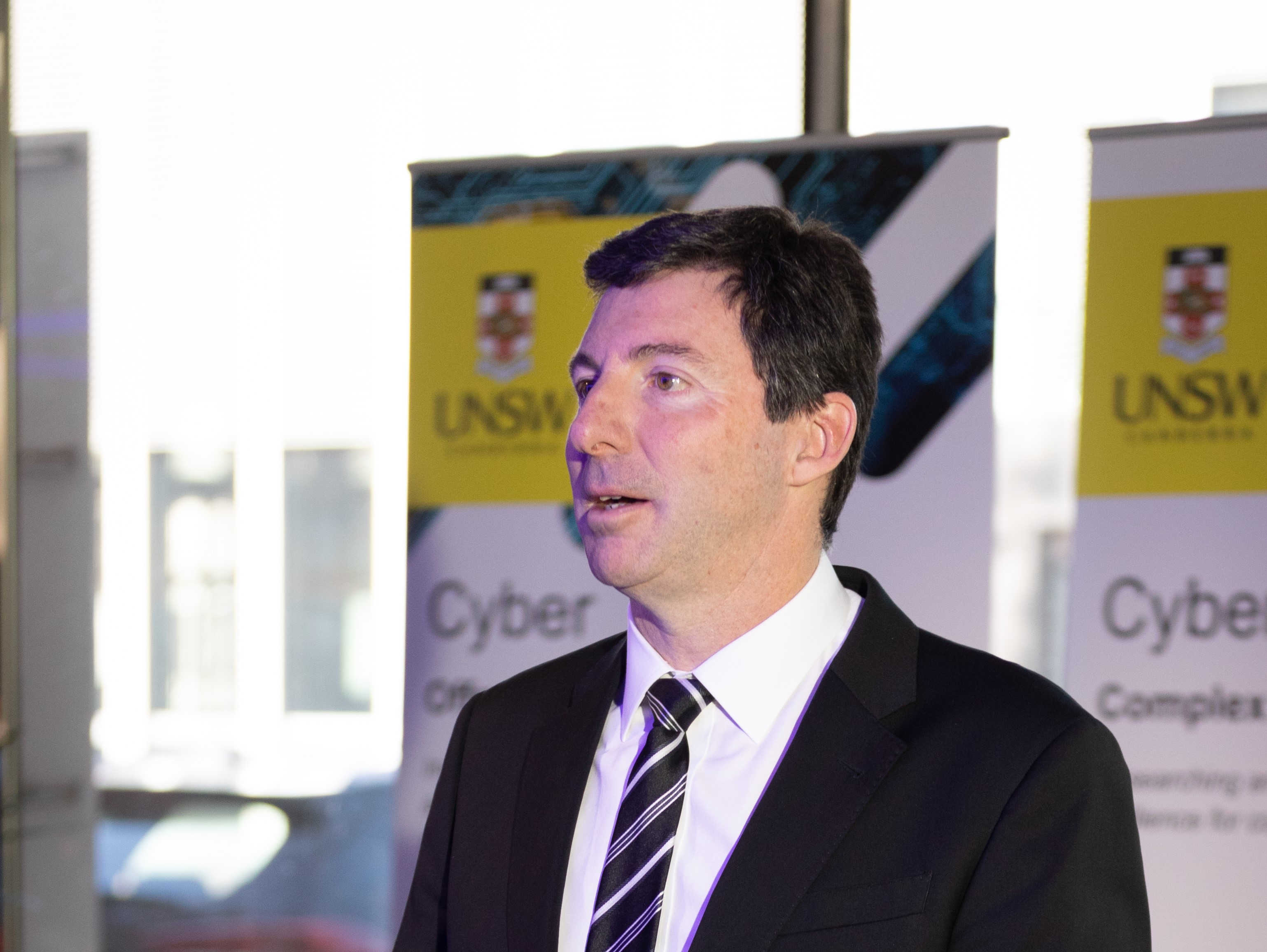Ask an expert: UNSW Canberra Cyber Director Nigel Phair
Q: What is Cyber Security and why is it such an issue?
Q: What is Cyber Security and why is it such an issue?

Q: What is Cyber Security and why is it such an issue?
Cyber security: no doubt you’ve heard this term, but what is it and what can we do to protect ourselves? We asked the Director of UNSW Canberra Cyber Nigel Phair what it all means.
Q: Why should Australians care about their personal cyber security?
Australians need to understand the value of their personally identifying information. They need to safeguard it against criminals who may seek to undertake identity takeover and use an identity for illicit financial gain. This could be to gain consumer credit and purchase a phone plan, car loan, etc.
Unfortunately, when this occurs most people do not know it has happened until it is too late. They also need to be wary of online marketing, this includes social media companies who collect vast sums of data to direct highly targeted advertising to consumers via their platforms.
Q: How do hackers bypass security measures such as firewalls?
‘Hackers’ use a wide range of technical and non-technical means to gain access to a computer network. The length and breadth of this is extraordinary, however a popular and successful method involves socially engineering users, getting them to divulge usernames and passwords, or getting them to undertake actions they wouldn’t ordinarily do.
Q: We are constantly hearing about ‘The Cloud’. Is it too risky to store personal information on online databases?
This is a misnomer. Done properly storage of data in a cloud environment is safer than an on-premise solution. The secret is to take a risk-based approach and use controls appropriate to the level sensitivity of the data.
Q: What steps can an everyday person make to protect themselves?
Consumers need to use their ‘real world’ sensibilities when operating in the online environment. They need to understand the internet is a public place and they should act ethically, responsibly and lawfully. But just like any other public place, there are some people seeking to do them harm. They need to be particularly wary of scams, where there are offers of things which on face value appear too good to be true.
Q: What is the number one cyber threat Australia is facing today?
Phishing - the use of trusted brand names by criminals to dupe internet users into divulging information, such as personally identifying information or bank account details.
Q: What does the future of cyber security look like?
Great question! Machine learning will make further inroads into things like penetration testing and analysis of logs. There is lots of vendor talk about artificial intelligence, but it is some years away until we truly see intelligence demonstrated by machines which can accurately mimic the cognitive function associated with a human mind to solve cyber security issues.
Nigel will be appearing at the Safeguarding Australia Summit in Canberra on Wednesday 8 May. UNSW Canberra students are eligible for a discounted rate, visit: https://www.safeguardingaustraliasummit.org.au/summit-2019 for more information.